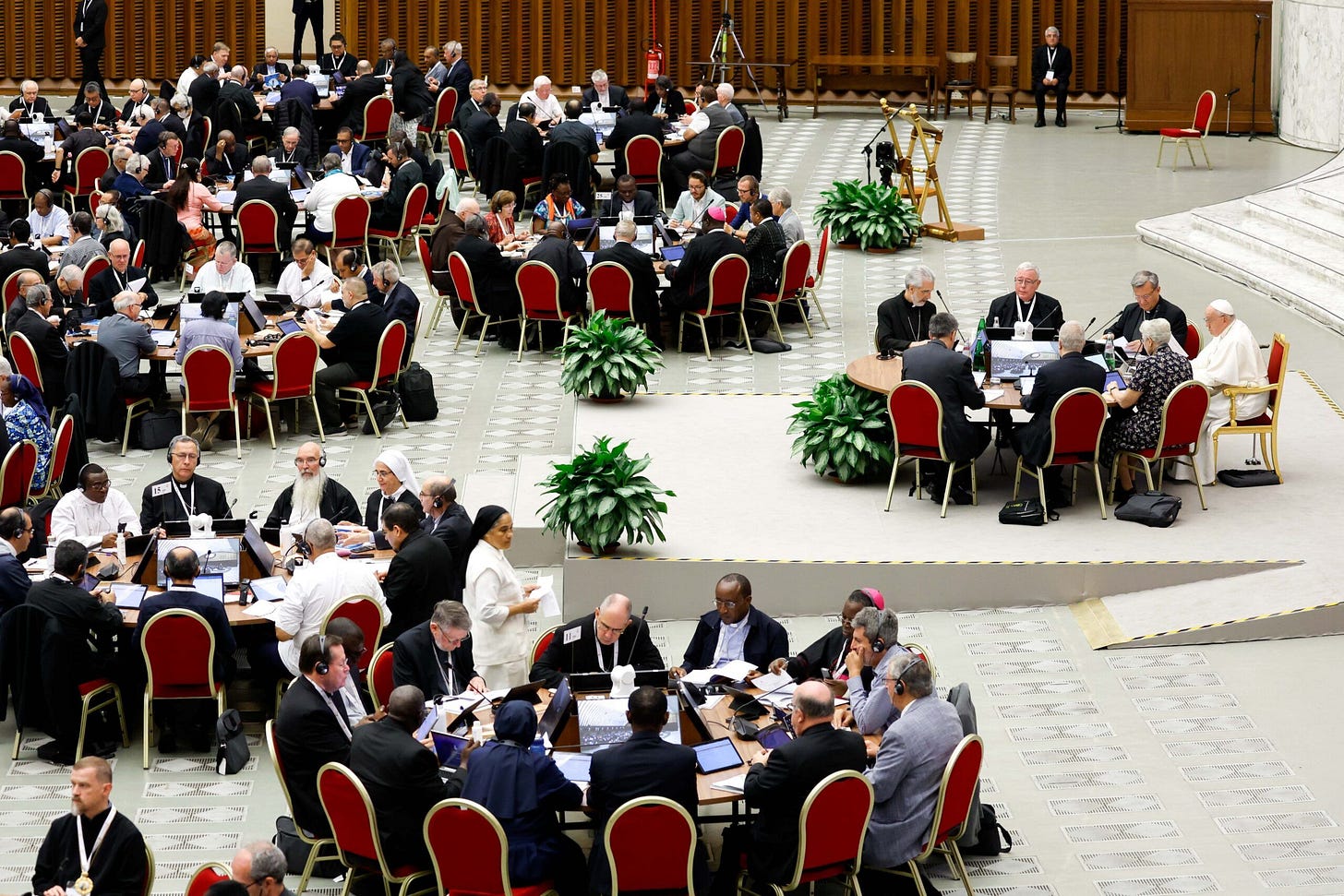Part Four - Development and Reversal in the Church’s Teaching
This is the fourth and final article in a four-part series about the development of doctrine. Here are parts One, Two, and Three.
The Synod on Sydonality
Understanding all of this is essential for a better understanding of the Synod on Synodality. Catholic news organizations and social media are abuzz with discussions about what this synod will address, including controversial topics like homosexuality, ordaining women, restructuring the Church, and more. Though the Synod’s Instrumentum Laboris itself does not mention most of these contentious issues, it is clear that some Catholics hope for rupture from the past and others are fearful of any change at all.
Through the synod, Pope Francis has brought together a diversity of voices, including some of these progressive and traditionalist voices, and asked them to pray, listen, and share with each other their ideas, experiences, and what the Holy Spirit has put on their hearts. Eventually, the group will provide their recommendations to the pope. Will the pope reform any of these hot button teachings? We do not know. But we do know that whatever the pope teaches at the end of this process will be safeguarded by the Holy Spirit and will be in continuity with the unchanging substance of Revelation, even if it appears different from the teachings that have come before. For, as the Catechism of the Catholic Church teaches, “Divine assistance is also given…in a particular way, to the bishop of Rome” whenever he proposes “a teaching that leads to better understanding of Revelation in matters of faith and morals” (Catechism of the Catholic Church 892). This is true even for magisterial teachings that are not definitively or infallibly taught (CCC 892).
Under Pope Benedict, the then-CDF published a document addressing the "hermeneutic of continuity." The CDF specifically pointed to the Catechism, as well as the many synods and post-Synodal Apostolic Exhortations, as providing “a precious commentary – a true hermeneutic of continuity of the teachings of Vatican II.” These sources are “privileged instances of efforts to ensure a correct hermeneutical interpretation of the Second Vatican Council at the level of the universal Church.” In other words, if you want to better understand the Council, pay particular attention to the teachings that result from this synod. With trust that the synod will not lead to a rupture with the unchanging substance of Revelation, there is the freedom to feel excited about the ways that the Holy Spirit will, like a growing oak tree, make our understanding of God greater and stronger through this process.
Let us pray for the Holy Spirit to give us greater faith in God’s goodness and more trust that the living Magisterium will lead the Church to a deeper and richer understanding of the Truth about God and the infinite dignity of every human person. Without this trust we wander into a distorted understanding of Tradition that ultimately leads to a subjective relativism. The path away from the hermeneutic of traditionalism is the same path Pope Benedict presented in response to the hermeneutic of discontinuity, the same path that Pope Paul VI offered to Archbishop Lefebvre: a hermeneutic of reform rooted deeply in fidelity to the Holy Spirit working through “the contemplation and study made by believers” and the teaching “of those who have received through Episcopal succession the sure gift of truth” (DV 8).
In a 2012 address, Pope Benedict said that Christians “do not possess the truth,” rather, “the truth possesses us.” Our faith is not a house of cards that could fall at any time. We do not need to feel threatened by questions and developments. We do not need to fear venturing into the “open sea of truth,” because “Christ, who is the truth, has taken us by the hand, and we know that his hand is holding us securely on the path of our quest for knowledge.” In the end, the Truth is not a set of "right ideas" about Christ, but Christ Himself. Real reform is rooted in His taking us by the hand, walking with us through history, helping us understand more and more who He is, and in doing so, revealing to us more of what is truth about ourselves.


